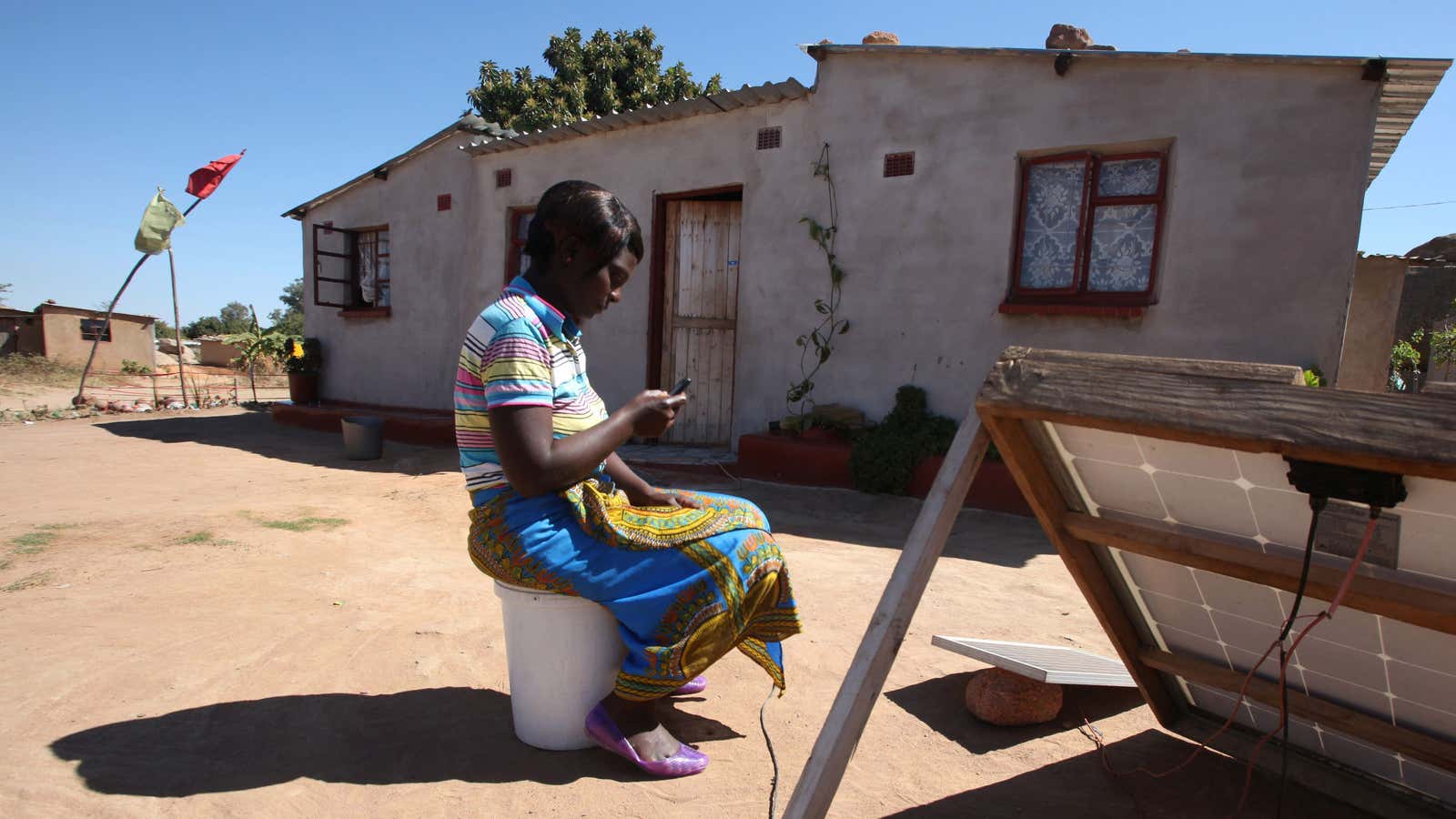Outspoken women activists with a large following on social media are likely to be cyberbullied for their advocacy, according to a 2018 report by Amnesty international. It also found that most abuses against women involved physical and sexual violence, targeted harassment, privacy violations and attacks on their appearance or identity.
While the report focused on the experiences of women in Western countries those in the developing world have not been spared from the menace of online harassment either. Women in the global south often lag men in social media use due to cultural conditioning and financial restrictions.
The issue is particularly acute in African countries where the mobile phone is the primary tool for access to the internet and social media. As the mobile industry body, GSMA, notes there remains a significant gap when it comes to phone ownership between men and women in developing countries. This ultimately leads to disproportionate outcomes in how female African activists are targeted online.
“Men’s [higher] income affords them phone and internet accessibility,” Nanjira Sambuli, a tech researcher and senior policy manager at the Web Foundation, said of the gender discrepancy. “Also adverse social norms around what women can and cannot do lead to self-censorship.”
Cyberbullying is ubiquitous but underreported, with women shrugging it off because “it happens all the times,” and “authorities don’t care” as revealed in a 2015 research conducted in cities across Africa, Latin America and South East Asia by the Web Foundation.
“The police in my country are of no use when it comes to justice,” said prominent Togolese social justice campaigner Farida Bemba Nabourema, whose #FaureMustGo movement to end president Faure Gnassingbé’s dictatorship has seen her subjected to defamatory comments and death threats online primarily from government officials.
“The reality is the attack I receive is the consequence of the work I do as an activist, the awareness I raise, and my impact,” she said.
Like Nabourema, Nigerian feminist Ozzy Etomi has a large following on Twitter and been attacked online for challenging sexist traditional norms in Nigeria. “Sometimes [the trolling] gets overwhelming,” she said, “but I know they’re trying to silence or scare me into keeping quiet.”
While Etomi doesn’t take insults from anonymous accounts seriously, she once considered quitting Twitter after one such account posted a defamatory tweet about her husband.
United Nations High Commissioner for Human Rights Zeid Ra’ad Al Hussein stated the purpose of sexualised violence and threats was to intimidate and prevent women activists from speaking out online.
“Online campaigns against women human rights defenders and organisations aim to damage their credibility as advocates, to diminish or obliterate the power of their voices, and to restrict the already limited public space in which women’s activists can mobilise and make a difference,” he said.
Egyptian women’s rights defender Mona Eltahawy is one such activist who’s faced online harassment from white supremacists, homophobes, transphobes and conservative Muslims due to the wide-ranging nature of her activism.
In January, Eltahawy was viciously harassed for weeks for leveraging her over 300,000 Twitter followers to secure the release of Saudi teen Rahaf Mohammed from detention in Thailand. The activist believes the attacks were a coordinated effort orchestrated by the Saudi regime, citing its treatment of government critics and women’s rights advocates.
“[Trolls] see a women who has power, and they’re convinced they have the right to attack and shrink her down to the size they believe she should be,” she said. “This is ultimately patriarchy, a social construct that privileges male dominance.”
To be sure, cybercrime laws, where they exist, have been used by governments to bully female activists, like in Jamaica, and frighten citizens from discussing controversial issues online or withdrawing support for a cause. It’s for this reason Nabourema rarely mentions her abuse.
“While [threats] do not scare me, they may scare other people,” she said. “The [government] wants to use me to teach a lesson to other activists.”
Civil society organisations across Africa are partnering with their respective governments to close the gender digital divide and help state organs devise proactive measures to combat cyberbullying.
In Nigeria, Paradigm Initiative worked with lawmakers to draft the Digital Rights and Freedom Bill, which was transmitted to the president in February. If signed into law, it will guarantee freedom of expression online, data privacy and legal recourse for cyber harassment among other things. Still, there’s little guarantee it would have teeth, especially since the Nigerian government itself is guilty of violating human rights.
Sign up to the Quartz Africa Weekly Brief here for news and analysis on African business, tech and innovation in your inbox
